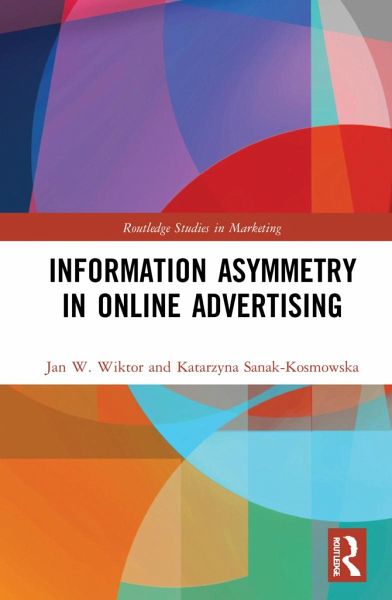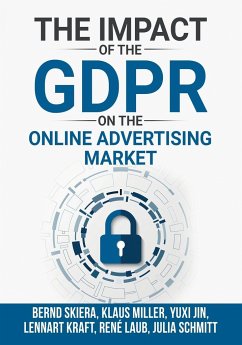
Information Asymmetry in Online Advertising
Versandkostenfrei!
Versandfertig in 1-2 Wochen
167,99 €
inkl. MwSt.
Weitere Ausgaben:

PAYBACK Punkte
84 °P sammeln!
Advertising is a company's major form of communication with the market; it is a component of the IMC system, having a special impact on the addressee, and is a form of persuasive communication affecting consumer behaviour. Advertising may reflect information asymmetry between an advertiser and recipients. This book presents an assessment of the forms and range of consumer behaviour manipulation through information asymmetry in online advertising and explores the possible causes, forms, and effects. The work offers a new approach to the role of advertising in the digital world, especially its f...
Advertising is a company's major form of communication with the market; it is a component of the IMC system, having a special impact on the addressee, and is a form of persuasive communication affecting consumer behaviour. Advertising may reflect information asymmetry between an advertiser and recipients. This book presents an assessment of the forms and range of consumer behaviour manipulation through information asymmetry in online advertising and explores the possible causes, forms, and effects. The work offers a new approach to the role of advertising in the digital world, especially its forms and impact strategies. The theoretical framework presented is based on issues related to online advertising, information asymmetry, and social manipulation. The book describes the ways in which these areas can be explored, and it presents the results of empirical studies. Empirical research allows for identifying companies' moral hazard strategies and their consequences - e-consumers' adverse selection. The research provides an empirical answer to the question: to what extent is advertising a transparent form of communication, and to what extent does it represent the world of manipulation? Based on an interdisciplinary theoretical approach, empirical studies conducted by the authors, and theoretical and managerial implication, the book encourages its readers to find their own answers. Given the interdisciplinary nature of this work, it will be of interest to scholars and researchers within the fields of marketing, media and communication, economics, psychology, sociology, and ethics.













